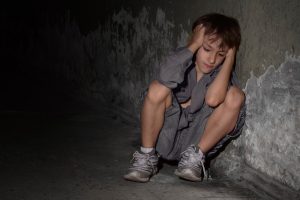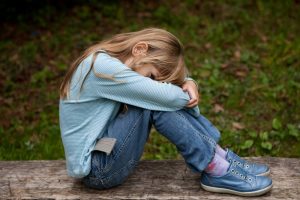Distinguishing Child Abuse from Neglect in New Jersey
Frequently Confused, Child Abuse and Neglect are Not the Same in NJ

If you have been charged with child abuse or neglect in New Jersey, or you are currently being investigated by DCP&P, contact The Montanari Law Group to speak with a lawyer who will work diligently to preserve your rights and take on both the criminal law and family law aspects of your case. Receive a free consultation by calling (973) 233-4396 today.
Understanding Abuse and Neglect in New Jersey
The State of New Jersey Differentiates between Neglect and Abuse, though both are explained in the Same Statute N.J.S.A. 9:6-1.
Abuse Categories
There are three categories of abuse: physical, emotional, and sexual. Physical abuse includes burning, hitting, shaking, shoving, slapping, etc. Emotional abuse is more difficult for those outside the family to detect but can be as devastating to the child as physical abuse. Humiliating, threatening, isolating the child, and other actions are considered emotional abuse. Sexual abuse is sexual contact, penetration, indecent exposure, using a child to make child pornography, and other sexually related acts.
In addition, abuse is acknowledged as allowing or forcing a child to work at an unlawful age or doing something dangerous. Giving a child away without going through the proper legal channels is abuse, as is regularly using coarse or obscene language in the child’s presence. Performing immoral acts in front of a child or allowing others to do so is abuse. Restraining a child excessively, isolating them from human interaction by means of institutionalizing them or by other means is also considered abuse.
Identifying Neglect Actions
Neglect has more to do with the relationship between the child and the parent and the child’s environment being one of safety and health. Child neglect is concentrated on the child’s care: failure to provide food, clothes, proper hygiene standards, a clean place to live, education, and medical care. Specifically, it is the failure of a parent to give the child adequate nourishment, clean clothes that fit them properly and are appropriate for the weather, shelter, affection, and supervision to keep the child from harm. Failure to provide medical care is also considered neglect. Neglect is also withholding affection, love, and encouragement or not permitting the child to attend school. Further, it is preventing acts that would support the child’s well-being (physical or moral), or placing a child in an institution while being aware that mental or physical harm may be done to them.
What Distinguishes Abuse from Neglect?
Child abuse is more perspicuous than child neglect. It is easier to identify child abuse when there are outward signs of violence than covert evidence of negligence. Neglected children may seem sleepy, unkempt, and hungry. Abused children may have frequent bruises, swollen areas of the body, and serious injuries such as sprains and fractures. Both abuse and neglect are perpetuated at a higher rate in households near or below the poverty level or where drug dependency is prevalent.
When accusations arise about a parent or guardian who may be abusing or neglecting a child, government agencies like the Division of Child Protection & Permanency must establish the actions committed by the parents or guardian specifically after they conduct a complete investigation. The state may then pursue legal action to protect the child from further abuse.
Criminal Child Abuse and Neglect Offenses in New Jersey
The most frequent charges that arise in child abuse and neglect cases are for violations under N.J.S.A. 9:6-3. According to this statute, cruelty and neglect of children is a crime of the fourth degree. This encompasses any person who has the responsibility of caring for the child, custody of them, or control over them. The actions that may lead to fourth degree charges include abuse, abandonment, be cruelty or neglect. Fourth-degree convictions carry an 18-month sentence to imprisonment in New Jersey. Frequently neglect charges are brought against a caregiver for committing an offense outlined in N.J.S.A. 9:6-3.
The State of the child and the alleged actions of the defendant are what determines the charge. For this reason, there are other crimes that lead to criminal prosecution based on child abuse and neglect. In the most severe cases, first-degree child abuse convictions carry 10-20 years in prison and up to $200,000 in fines. These charges are typically given in cases of sexual abuse and charged as aggravated sexual assault. Second-degree charges may also arise for sexual assault or endangering the welfare of a child, which can lead to 5-10 years in prison and up to $150,000 in fines. Third-degree charges can involve less severe endangerment and third-degree crimes carry a 3–5-year prison sentence. Fourth degree charges may also be filed for exposing the child to harm but not harming them.
How Child Abuse and Neglect are Investigated by the Division of Child Protection and Permanency
The investigation done by DCP&P begins with a home visit and an interview with the parents. They are questioned about how long (if ever) the children are alone, typical meals, children’s interests or school activities they enjoy, and many more, including possible sexual abuse. The agency will elaborate a risk assessment to decide if the child is in imminent danger. If deemed so, the child will be removed immediately from the home. Two days later, a hearing will be held to allow the parents to oppose the child’s removal. Thirty days later, another hearing will be held to determine whether the child will be returned to the home. DCP&P is required to show that the child is in harm’s way through a preponderance of the evidence. Until the family participates in various social/family services, the situation will not change. The child is assigned a Law Guardian to represent their best interest and safety. This person is not an employee of DCP&P, if not an employee of the State.
Distinction Between a Criminal Case for Child Abuse/Neglect and DCP&P-Related Legal Issues

Apart from the investigation by DCP&P, a criminal case may also be opened about the abuse and neglect of the child involved. When facing criminal child abuse charges, the procedures are the same as any other criminal process. There will be an arraignment to formalize the charges being pressed against them. The case, if not resolved first, will be presented before a grand jury, who will decide if there is enough evidence to go to trial. If they agree that the case should be tried, the State must prove beyond a reasonable doubt the defendant’s guilt.
Two very different concepts are proving beyond a reasonable doubt or a preponderance of the evidence. It is possible that DCP&P could use information revealed in the trial (as a public record) to further a cause to keep a child away from a parent.
If You are Facing Child Abuse and Neglect Charges, Contact our Little Falls Law Office Today
As stated above, DCP&P can remove a child from your home without you ever being charged criminally. DCP&P employees are anxious to help children in distress, but sometimes their misinterpretations lead them to unfounded conclusions.
If you have been accused of child abuse or neglect or DCP&P has made accusations that could threaten the custody of your children, your best option is to hire a diversely trained and experienced family law and criminal defense lawyer as soon as possible. Child abuse and neglect laws are complex and may cause issues for you in multiple court systems. You need someone to help you avoid losing custody of your child for a mistake or misinterpreting your parenting capability, while also averting the serious ramifications of a criminal conviction if you are facing criminal court as well.
Call The Montanari Law Group today to obtain the help you need with every element of your child abuse or neglect case. We have worked with many families in Woodland Park, Caldwell, Little Falls, Clifton, Wayne, Haledon, and throughout Passaic County, and look forward to working with yours. Feel free to send us a message online or contact our local office in Little Falls directly at (973) 233-4396. Our compassionate, experienced team is ready to assist you.
